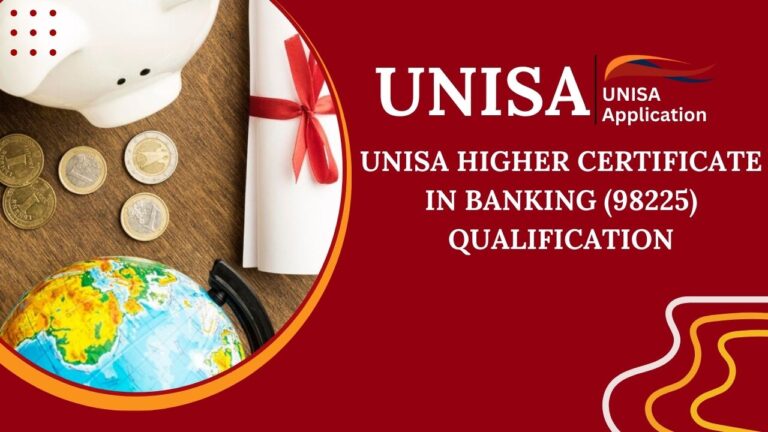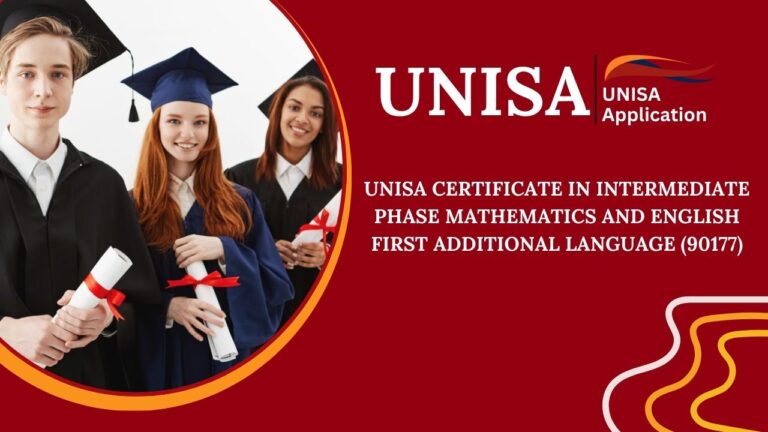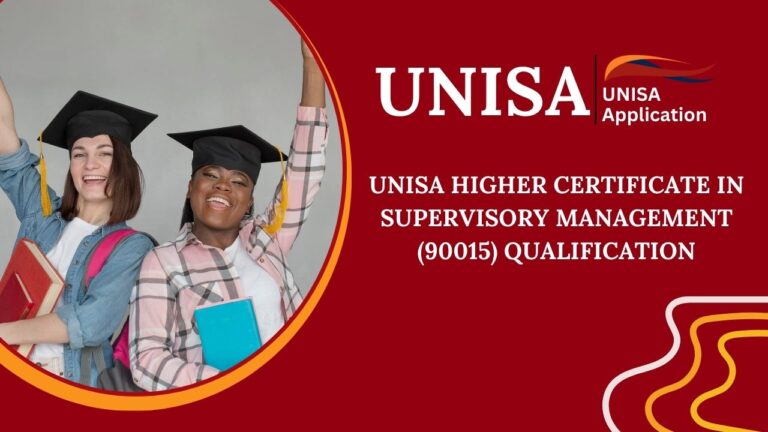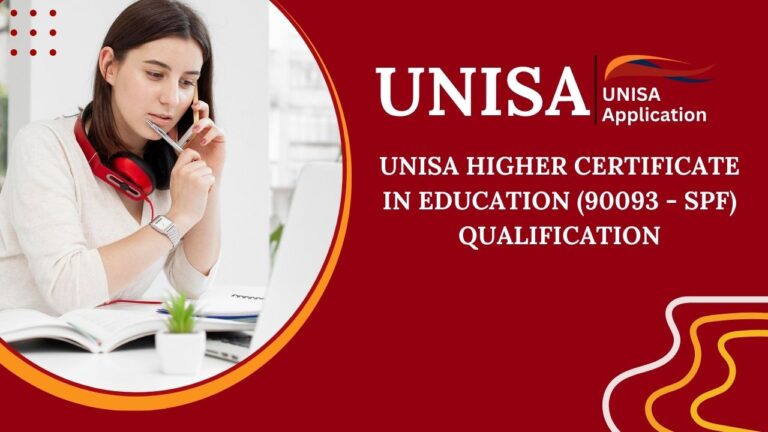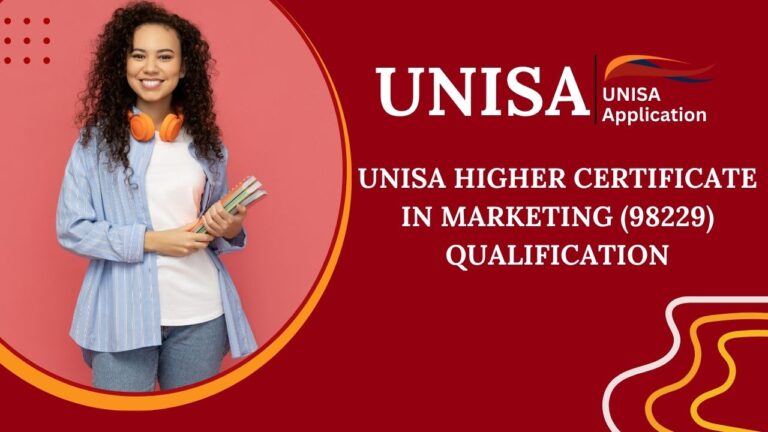UNISA Higher Certificate in Tourism Management (98226) Qualification
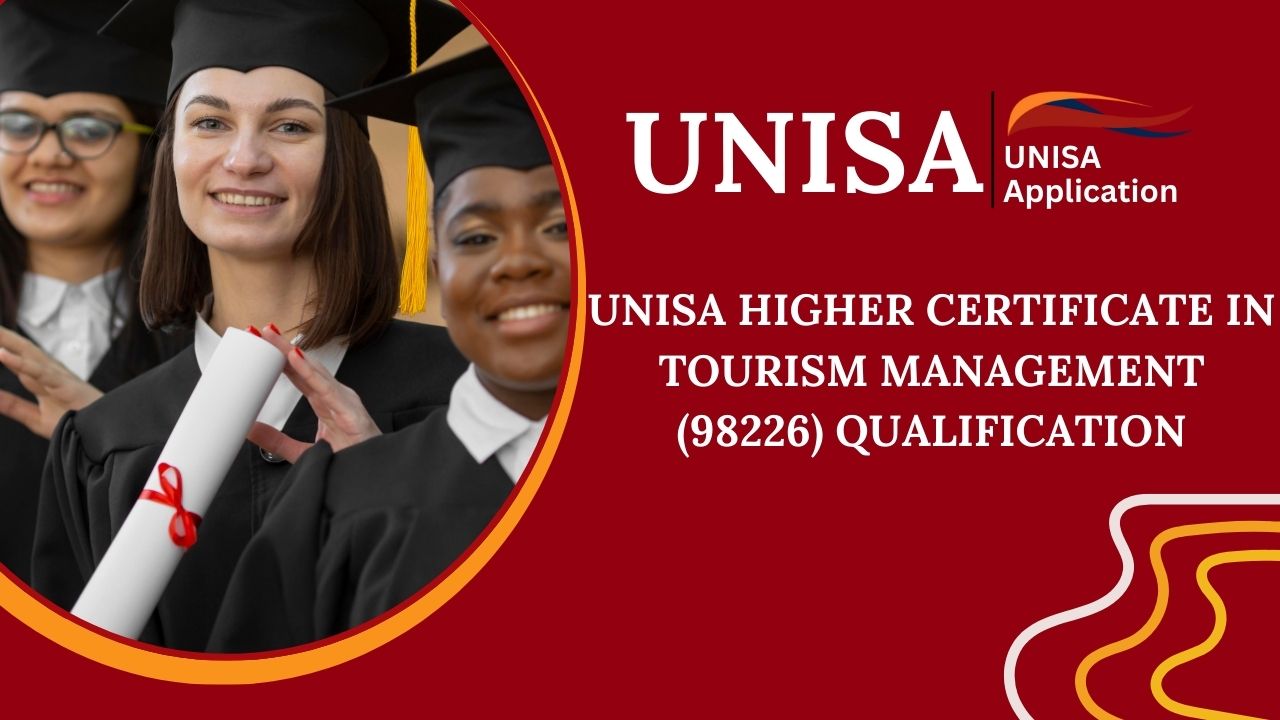
UNISA Higher Certificate in Tourism Management (98226) Qualification. The Higher Certificate in Tourism Management offered by the University of South Africa (UNISA) is an essential qualification for those seeking a solid foundation in the tourism industry.
Designed to prepare students for entry-level roles within the tourism sector, this qualification offers both theoretical knowledge and practical skills to support a thriving career in travel, hospitality, and tourism management.
If you are passionate about exploring the dynamic world of tourism and seeking a qualification that opens doors, the Higher Certificate in Tourism Management is the ideal starting point.
Qualification Overview
- Qualification Code: 98226
- NQF Level: 5
- Total Credits: 120
- SAQA ID: 101434
- APS/AS: 15
Purpose Statement of the Qualification
The Higher Certificate in Tourism Management aims to introduce students to the tourism field. It provides them with the skills and knowledge needed to succeed in the tourism sector. This qualification is designed to ensure that students:
- Gain a fundamental understanding of tourism management theories and principles.
- Acquire the ability to perform basic duties under supervision, including front office management, travel bookings, and customer service.
- Learn how tourism organizations gain competitive advantages and achieve business objectives.
- Understand the importance of good customer service in the tourism and travel industry.
- Develop the skills, qualities, and behaviors essential for effective performance in the tourism workplace.
The qualification will be delivered using both online and distance learning modes, allowing students the flexibility to learn at their own pace and from various locations.
Who Can Register for the Program?
To register for the Higher Certificate in Tourism Management, applicants must:
- You must be a new applicant or current UNISA students who have applied for admission to their first qualification.
- Have received an UNISA placement offer and accepted the offer online.
- Re-registering students may register for the 2025 academic year once the registration period opens.
It is important to note that UNISA reserves the right to cancel or not process the registration. This is if it is determined that the applicant was incorrectly admitted to the qualification.
If you wish to pursue this qualification, apply online during the prescribed application period.
How to Choose Your Modules
UNISA qualifications are built around the completion of a certain number of NQF level credits within a specified time frame. In this case, students must complete 120 credits for the Higher Certificate in Tourism Management. When selecting modules, students should consider the following:
- Co-requisite: If Module A is a co-requisite for Module B, you must register for both modules at the same time. You cannot cancel Module A unless you also cancel Module B.
- Pre-requisite: If Module A is a pre-requisite for Module B, you must complete and pass Module A before registering for Module B.
- Credit Limit: Students may not register for more than the maximum allowed number of credits per semester or academic year. This is 60 credits per semester and 120 credits per academic year.
In addition, it is essential to manage your time wisely to ensure successful academic performance. You should allocate approximately:
- 6 to 8 hours per week for semester modules.
- 4 to 6 hours per week for year modules.
Curriculum for the Higher Certificate in Tourism Management
The Higher Certificate in Tourism Management qualification consists of various modules that will help students develop a well-rounded skill set. The modules are organized in the following way:
- DTM1501 – Travel Operations: This module provides students with an introduction to the operations within the tourism and travel industry, focusing on key aspects such as travel agency operations, tour planning, and the role of travel operators.
- ENG1504 – Practising Workplace English: A critical module to enhance students’ written and verbal communication skills in the tourism workplace, ensuring that they can interact professionally in various contexts.
- EUP1501 – Ethical Information and Communication Technologies for Development Solutions
This module explores the ethical use of information and communication technologies in the tourism industry, focusing on their role in providing development solutions within the sector. - FAC1501 – Introductory Financial Accounting: A foundational course in financial accounting, helping students understand the basics of accounting within tourism businesses, including managing budgets, expenses, and financial reporting.
- IOP1502 – Customer Service in Tourism: Focusing on the essential skills for providing excellent customer service in the tourism sector, this module teaches students how to engage with customers effectively, addressing their needs and expectations.
- MNG1502 – Management IA: This module introduces students to the principles of management in the tourism industry, covering areas like leadership, decision-making, and the basic functions of management.
- MNM1503 – Introduction to Marketing: A primer on the fundamentals of marketing, this module covers the strategies and tools used by tourism businesses to attract and retain customers.
- QMI1500 – Elementary Quantitative Methods: This module covers the basics of quantitative methods that are applied in tourism business operations, including data analysis, statistics, and research methods. (Note: Co-requisite BNU1501)
- SUS1501 – Sustainability and Greed: Focusing on sustainable tourism practices, this module examines the balance between tourism development and the preservation of natural resources.
- TRT1502 – Primary Factors of Tourism: Students will gain insight into the primary factors that drive the tourism industry, including cultural, economic, environmental, and social influences.
Module Selection Tips and Study Strategy
When selecting your modules, ensure that you carefully consider your time and energy availability. Managing your studies effectively will significantly impact your academic performance. UNISA’s study materials are tailored to be manageable, but it’s important to set aside sufficient time for each module.
Be sure to reach out to UNISA support services for any questions or concerns about module selection, co-requisites, or prerequisites.
Conclusion
The Higher Certificate in Tourism Management from UNISA offers an excellent entry point for those wishing to pursue a career in the tourism and hospitality industry.
With a well-rounded curriculum that blends theory and practical skills, students will be well-prepared for a variety of roles, including travel consultants, tour operators, and customer service managers.
Whether you’re looking to advance your career or transition into the tourism sector, this qualification is the first step toward a rewarding and dynamic profession.


